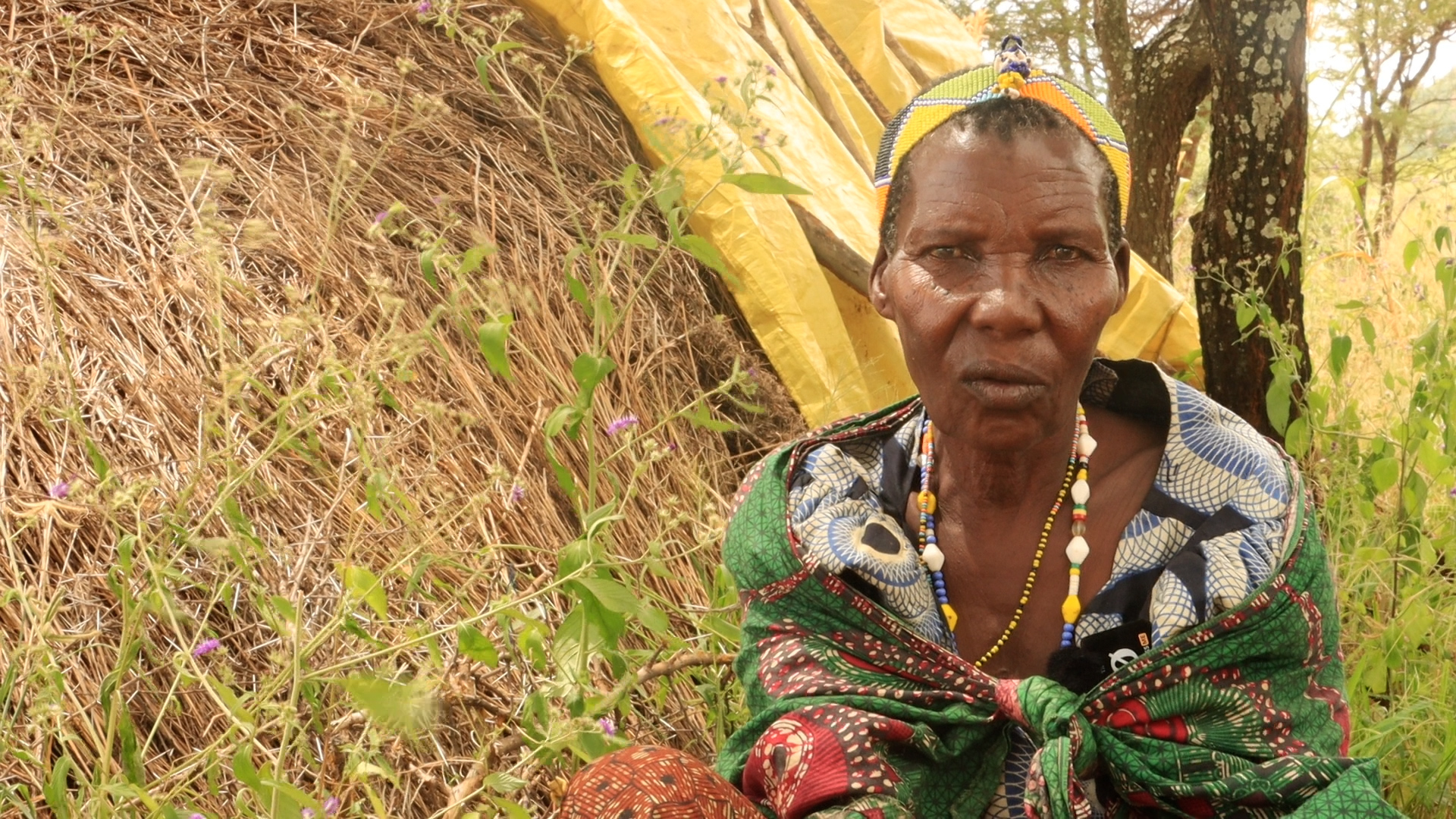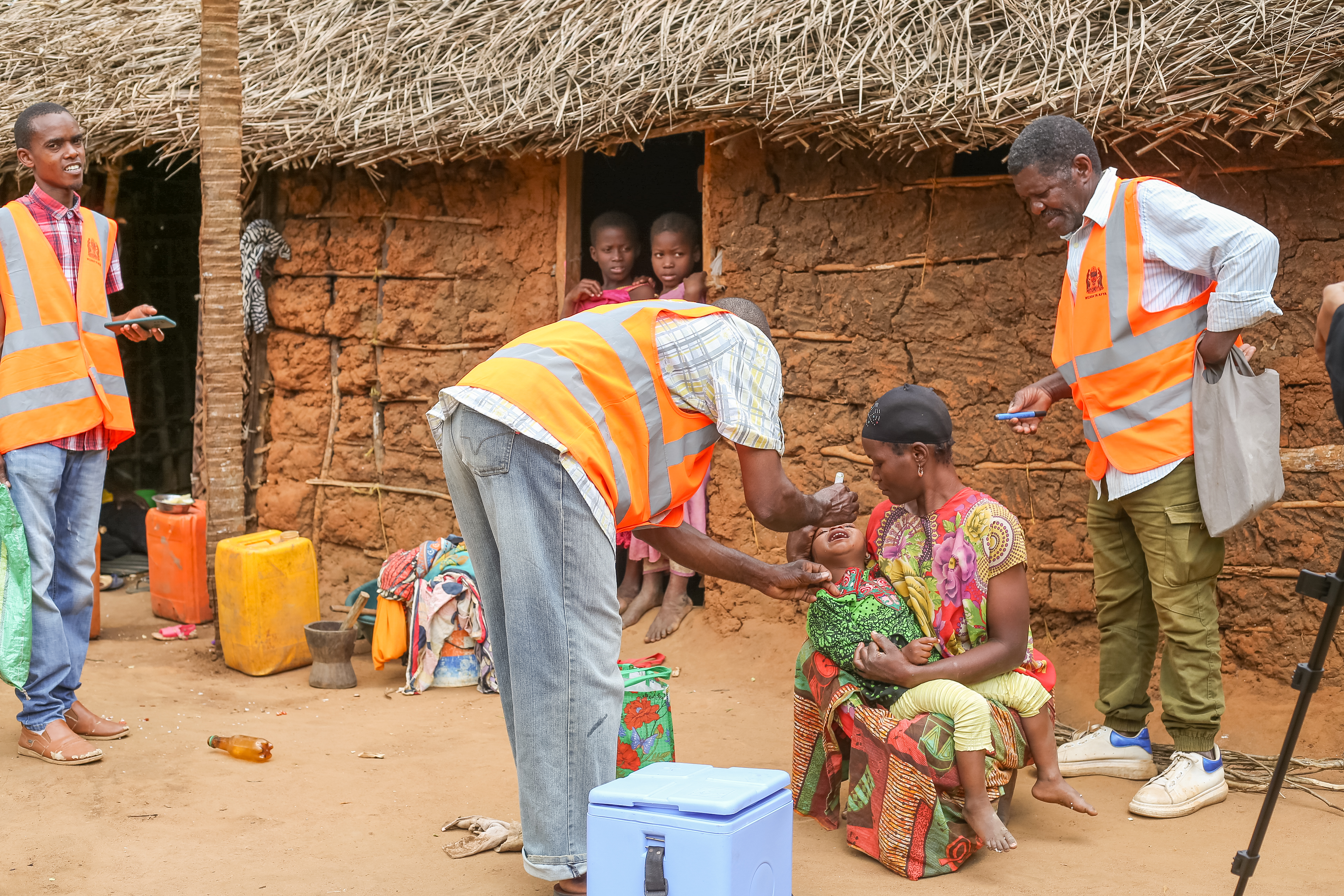Manyara - “Why did I vaccinate?” Athuman Magandala walks out steadily from his hut and pauses for a while. “Growing up in a community that has a scarcity of health service, I have relied on herbals even for my children and parents. But we got a community health worker who educated us on the significance of Vaccination. We also heard it on the news often, so I decided to vaccinate and also got my children vaccinated”, the 40-year-old hunter from the Hadzabe tribe narrated.
This is the story of the Hadzebes. One of the few remaining full-time hunter-gatherer cultures on earth, located in Mongoamonu village in the Manyara Region in north-central Tanzania. Albeit the distance and setbacks in reaching people in this community, Tanzania has defied all the odds to reach the Hadzabe community with both routine and COVID-19 vaccination.
Getting to hard-to-Reach Communities
Vaccination has proven to be one of the most effective interventions to control outbreaks and pandemics. But usually, it is met with a high degree of hesitancy.
Tanzania’s reception of vaccination against COVID -19 was received with hesitancy at the beginning with a coverage of only 2.8% of the total population by mid-January 2022. In addition, World Health Organization (WHO) and UNICEF estimate of national immunization coverage indicates that the proportion of children reached for the third dose of DTP3 containing vaccine declined from 89% in 2019 to 81% in 2021. This is largely attributed to the health system effects of the COVID pandemic.
In Manyara, which is one of Tanzania's 31 administrative regions with regional capital in the town of Babati with over 5 tribes, including the Hadzabes, COVID-19 vaccination coverage in the region was considerably low with a percentage of 3.7. The Government of Tanzania with support from the WHO UNICEF and Gavi, the Vaccine Alliance launched the COVID-19 Vaccine Delivery Partnership (CoVDP) in January 2022 to savior the situation.
According to the Regional Health Officer in Babati, Mr Suten Mwabulambo, “There was a clarion call to avert the situation. The Leadership was strongly advocating for all to vaccinate. We had to put in more effort, initially was very difficult. But thanks to the support of WHO and partners, we were able to train and deploy a bit more community mobilizers and health workers to these hard-to-reach communities”.
Living in an upland with a tight and impassable road, mostly very drenched during rains and surrounded by craggy pathways, the Hadzabe tribe is among one of the communities that are hard to reach and requires the high cost of delivering immunization services to its people. They are also well known for their “hadzabein” language which is not a widely spoken language in Tanzania. But, thanks to the resilience of many health workers, about 350 persons have been vaccinated against COVID-19 in the community and children are also receiving regular routine immunization.
“My motivation is to see all vaccinated. Hence, I do not wait for them to come to me. With the support the Government has given, I try my best to go with the community mobilizer to find the Hadzebes. I notice, when they see me coming to them, they are very appreciative, they tend to value the information and oblige quickly”, Ali Suleiman, one of the district vaccination officers in the community stated.
Its takes One
Undeniably, vaccination is one of the most cost-effective ways to ensure long and healthy lives. Every year, vaccines save 2-3 million lives globally, and millions more are protected from disease and disability. The bone of contention has always been changing the mindset and habits of people.
Julian Athuman Twangi has been living in the Mongoamonu village for more than 65 years. She and her husband have taken care of their 3 sons (including Athuman Magandala) using un-prescribed herbal medicines because that was easily at their disposal.
Thankfully, she received education from her son on the relevance of vaccination and she obliged: “Initially, myself and my husband said we will not vaccinate against COVID-19 because we do not go anywhere besides our village. But when my son came home, he mentioned that, although we don’t travel, he is always travelling and might contract the virus which can affect us badly because of our age. So, the community health worker came in to vaccinate us at home”.

There are many of such national and community influence stories amongst the Hadzabes and many tribes in Tanzania.
However, passionate Athuman Magandala revealed that there are more and more Hadzebe’s who live deep into the forest and needed to be reached. “People are living inside the bushes and truly, it is difficult to reach them. I want to implore the Government and WHO to train and work closely with community members like myself who have been vaccinated and believe in it to become advocates and support in reaching many others.”
WHO’s Support

WHO in collaboration with Clinton Health Access Initiative (CHAI) and Johns Hopkins Program for International Education in Gynecology and Obstetrics (JHPIEGO), launched support to the national campaigns and community outreaches.
Through WHO’s strong leadership and coordination, Jhpiego supported the engagement of political leaders and community leaders for community engagement. In addition, 711 health workers, and community members with 71 supervisors were trained on vaccination techniques, advocacy, risk communication and community engagement, vaccine, and data management among other topics.
Thanks to all these interventions, as of April 2023, Tanzania recorded an exponential increase of 51% of COVID-19 vaccination. Manyara Region is among the regions that recorded high coverage. This approach is also being translated to bridge the gap in routine immunization coverage.
Igniting more action with Partners at the core
The story of the Hadzabes is yet another example of how Tanzania with support from WHO and partners are defying all odds to reach everyone with vaccination. Forging more synergies to support and reach more persons living in hard-to-reach communities can ensure no one is left behind.
Communications Officer
WHO Country Office, United Republic of Tanzania
Tel: +255 744377899 (Phone)
Email: adjeidum [at] who.int (adjeidum[at]who[dot]int)
Email: mwengeew [at] who.int (mwengeew[at]who[dot]int)
Tel: +255 754 886441


